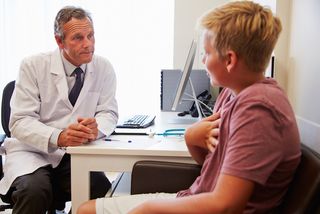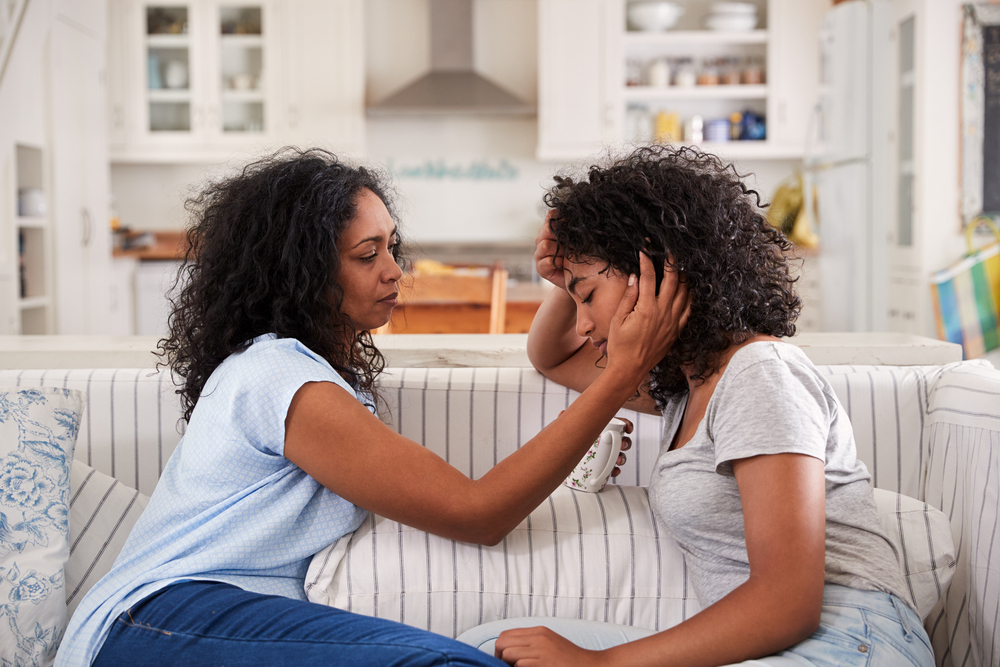
Stop Your Mind Drifting Into Depression
Why children and teens get depression and what you can do to help get them out of the grim mood disorder is the major focus of this article.
Although it is normal for your child to be moody or sad now and again, depression is an ugly mood disorder that can rob your child’s happiness. For instance, these moody feelings may appear after a parent’s divorce, relocation to a new town, or bullying at home or school. Or even the death of a loved one can trigger a bout of depression. But if your child can’t shake off these feelings for weeks or months, then they may be a sign of depression.
The perception previously was that only adults get depression. That has changed. Now the reality is a young child can get depression that requires medical treatment. Equally, data reveals that as many as 3 in 100 young children and 9 in 100 teens have serious depression. Unfortunately, many children have no access to the treatment they need to get better. Worse still, it can be difficult to separate depression from normal moodiness. Another fact is that depression in an adult may not appear the same as in a child.
Symptoms of Children’s Depression

If you are concerned about your child, it is important to know more about the symptoms of depression in children. So discuss with your child to find out how he or she is feeling. And if you think it sounds like depression, talk to your doctor immediately. Since the sooner your child gets treated, the sooner the chances of recovery.
Also, keep in mind that initially the symptoms of depression are often overlooked. Find below some of the probable symptoms related to a child’s depression:
- Grumpy, sad, or bored most of the time.
- Does not take pleasure in things he or she used to enjoy.
- Lose or gain weight.
- Sleep too much or too little.
- Feel hopeless, worthless, or guilty.
- Trouble concentrating, thinking, or making decisions.
- Can’t shake off death or suicidal thoughts.
In addition, the difference in symptoms may be related to the age of your child:
- Little children may lack energy and become quiet. They may show little emotion, seem to feel miserable, and have trouble sleeping.
- Grade school children may have frequent headaches or stomachaches. And likely to lose interest in friends and activities once liked. While some children with severe depression may hallucinate or have delusions.
- Teens may sleep a lot and move or speak slower than normal. Also, if depression is severe, they may hallucinate or have delusions.
Reasons Why Children And Teens Get Depression
The reasons why children and teens get depression are not well understood. Nonetheless, it is linked to an imbalance of brain chemicals that affect mood. As such, the things that may cause these chemicals to get out of balance include:
- Stressful events. Happenings such as relocation, changing schools, parents going through a divorce, bullying, or death in the family.
- Some medicines. Medicines such as steroids or narcotics for pain relief.
- Family history. Depression seems to be inherited in some children.
Diagnosis for Children’s Depression

To diagnose children’s depression, the doctor may ask your child questions to learn more about how the child thinks, acts, and feels. You may also be asked to fill out a form about your child’s symptoms.
Since some diseases may also cause look-like depression symptoms, your child may undergo tests to eliminate physical problems such as a low thyroid level or anemia.
Furthermore, children with depression often have other problems such as anxiety, attention deficit, hyperactivity, or an eating disorder. Subsequently, questions about these problems will be asked by the doctor to help your child get the right diagnosis and treatment.
Treatment for Children’s Depression

Education is normally one of the first steps for the child and family in treating depression. Teaching both the child and the family about depression can reduce the blame game. Besides, at times, it can open family members’ eyes to their own depression.
Counseling may help the child feel better. The type of counseling will depend on the age of the child. For young children, play therapy may be best. Older children and teens may benefit from cognitive-behavioral therapy. This type of counseling can help them change negative thoughts that make them feel bad.
Medicine may be used if the child is very depressed. A combination of antidepressant medicine and counseling often works best. While a severely depressed child may require treatment in the hospital.
Things You Should Know About Antidepressant Medicines

Although antidepressant medicines often work well for children who are depressed, there are some important things you should be aware of:
Watch your children closely
You need to monitor your children closely as they take antidepressants. This is because antidepressant medicines may increase the risk of your child thinking about or trying suicide. Particularly in the early weeks of use. Hence if your child shows signs of suicide, get help right away. These signs include:
- Talking, drawing, or writing about death.
- Giving away belongings.
- Withdrawing from family and friends.
- Suicidal ways, such as cutting the wrist or pills overdose.
Adhere to prescription rules

Although your child may start to feel better within 1 to 3 weeks of taking antidepressant medicine, it can take as many as 6 to 8 weeks to see more improvement. So it is important to ensure your child takes antidepressants as prescribed and keeps taking them so they have time to work.
Talk to your doctor if no improvement
Your child may need to try several different antidepressants to find one that works. If you are worried about the medicine or do not notice any improvement within 3 weeks, talk to your child’s doctor.
Home Help Treatment For Children’s Depression

There are some things you can do at home to help your child feel better. For example, you can:
- Encourage your child to get regular exercise, eat a healthy diet, and get enough sleep.
- Ensure that your child takes any medicine as prescribed and goes to all follow-up appointments.
- Spare time to talk and listen to your child. Show your love and support.
- Let your child know that things will get better in time.
https://greatergood.berkeley.edu/article/item/five_ways_parents_can_help_prevent_teen_depression
Photo Credit: Creative Commons


